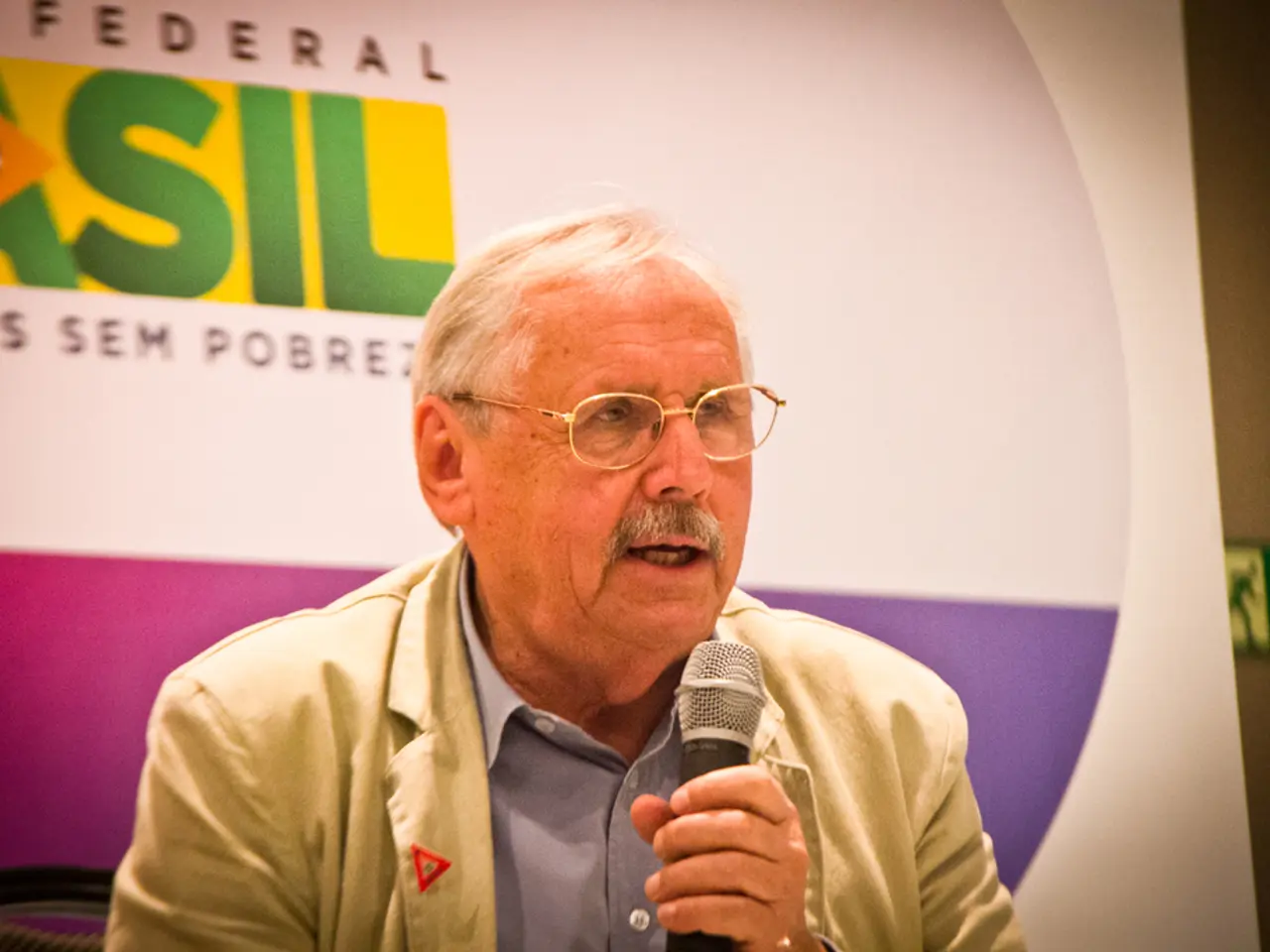Trump Softens Stance on Ukraine Ceasefire Following Meeting with Putin - Trump abandons insistence on ceasefire for Ukraine
Two people were tragically killed in a Ukrainian drone attack in the Russian border region of Kursk, according to official reports. This incident occurred as high-level diplomatic efforts continued to address the ongoing conflict between Ukraine and Russia.
U.S. President Donald Trump is set to receive Ukrainian President Volodymyr Zelensky at the White House on Monday. This meeting follows a recent encounter between the two leaders and Russian President Vladimir Putin in Alaska, where no deal or ceasefire was reached. Putin did not agree to pause the conflict, and Russian attacks on Ukraine continued during the meeting.
Despite Trump's shift from demanding a ceasefire, peace talks remain deadlocked with ongoing military conflict and no visible breakthrough toward a comprehensive peace deal. The fundamental disagreements between the parties are significant. Russia demands recognition of all occupied territories and guarantees that Ukraine will never join NATO, while Ukraine demands full Russian troop withdrawal and prosecution of war crimes.
The talks have been marred by distrust, including skepticism about Russia's sincerity and responses to incidents such as the Bucha massacre. In an effort to move towards a resolution, Belarusian President Lukashenko suggested a strikes moratorium should precede ceasefire and peace talks. However, independent assessments warn that Russia is likely to violate and exploit any ceasefire to continue attacks, thus complicating prospects for a stable peace agreement.
In 2025, after Trump became president again, his administration broadly aligned more closely with Russian proposals, moving away from a ceasefire demand, while European nations remained more supportive of Ukraine’s positions and pushed for a ceasefire enforced by an international coalition. Russia has rejected calls for a ceasefire, and fighting, including cross-border attacks into Russian territory, has continued.
The European leaders, including Germany, France, Britain, Italy, Poland, Finland, Ursula von der Leyen, and António Costa, are prepared to work towards a trilateral summit with Trump and Zelensky, involving European support. The summit could take place on European soil, according to Friedrich Merz.
Trump has promised to provide "security guarantees for Ukraine" and stated that the best way to end the war is to "reach a peace agreement directly" - "not just a ceasefire agreement, which is often not honored". However, these guarantees are inspired by Article 5 of the NATO treaty, without Ukraine joining the military alliance, according to Italian Prime Minister Giorgia Meloni.
The U.S. government does not recognize the International Criminal Court's arrest warrant for Putin issued in March 2023 for war crimes. Vladimir Putin described the meeting with Donald Trump in Alaska as "productive" but did not provide details. Putin called on Ukraine and the Europeans not to undermine a peaceful solution through provocations or intrigues.
In summary, despite high-profile diplomatic efforts, peace talks remain deadlocked with ongoing military conflict and no visible breakthrough toward a comprehensive peace deal. The situation remains tense, with both sides entrenched in their positions and the prospect of a peaceful resolution uncertain.
The European Union, with its commitment to upholding the principles of the United Nations Charter, has a responsibility to foster diplomatic efforts that seek a peaceful resolution to the war-and-conflicts between Ukraine and Russia. Amidst ongoing politics and general-news coverage, the EU leaders, including Germany, France, Britain, Italy, Poland, Finland, Ursula von der Leyen, and António Costa, are prepared to work towards a trilateral summit with Trump and Zelensky, involving European support, to help implement such resolutions.






